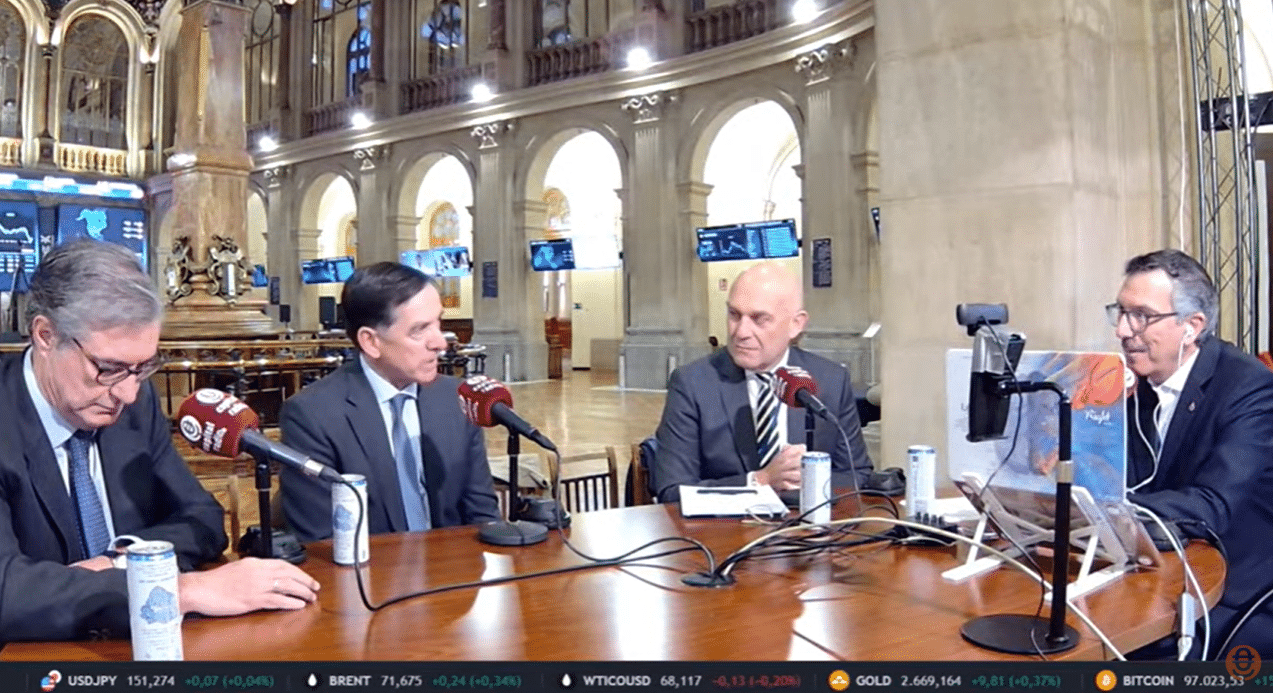“We believe Europe's growth may surprise on the upside”

Redacción Mapfre
Javier Lendines, General Manager of MAPFRE AM, is optimistic about GDP forecasts in the United States and Europe, as he explained in an interview on Capital Radio. Although profitability in the markets for the coming year is unlikely to be as high as in 2023 and 2024, he added, there is still potential for stock growth.
Asked about the stagnation in the U.S. economy predicted by many analysts, Lendines pointed out that while GDP was projected to grow around 2% this year, it will ultimately be almost 3% thanks to the strong labor market and productivity. He therefore believes the 2% forecast for next year “will fall short, and growth could be higher,” driven by consumer spending and measures such as the tax cuts for SMEs promised by Donald Trump.

All of this could help the U.S. stock exchange continue the rally it has experienced to date. It is “unlikely” to maintain the level of the last two years, but the environment for U.S. equities remains “positive,” said Javier Lendines during a special broadcast on Capital Radio from the Madrid Stock Exchange.
In Europe, Germany will be one of the main factors, according to the MAPFRE AM executive. The country will hold early elections in February, and the elected government could take measures to boost its economy. “It has the maneuvering room, in terms of deficit, to carry out this sort of program, and we believe Europe’s growth may surprise on the upside,” said Lendines.
With regard to the interest rate scenario, the executive stressed that there are differences between the United States and Europe, although both are making progress toward “normalization.” In the U.S., MAPFRE forecasts three rate cuts in 2025, driven by inflation control. The Eurozone is likely to see more, up to five or six, according to the MAPFRE analysts, justified by its weaker economic growth. “In Europe there is room to lower rates more aggressively,” explained Lendines.
All of this suggests a scenario where it will be difficult to continue offering attractive returns through products such as guaranteed funds, of which there will be significant maturities in the coming months. Therefore, MAPFRE AM expects to begin seeing outflows from guaranteed funds or money market funds to higher risk options, despite the fact that Spanish investors “are very conservative,” said Javier Lendines.
The MAPFRE asset manager's strategy involves being “flexible” and adapting to fast-changing circumstances. Lendines believes the outlook is “positive” but shares a “precautionary message.” Very good returns were recorded in 2023 and 2024, but with a “wide range of results.” For example, in European equities, the German DAX has increased by 20%, but the French CAC remains flat. There have also been big differences even among companies in the same sector, such as Nvidia's boom against Intel's falls; both companies manufacture semiconductors.
“The market is complicated, so it requires very careful analysis,” said the General Manager of MAPFRE AM, who concluded that, despite his positive view of equities, he currently prefers U.S. equities over European ones; and in fixed income, while bond portfolios have “upside potential,” he recommends shorter durations.



